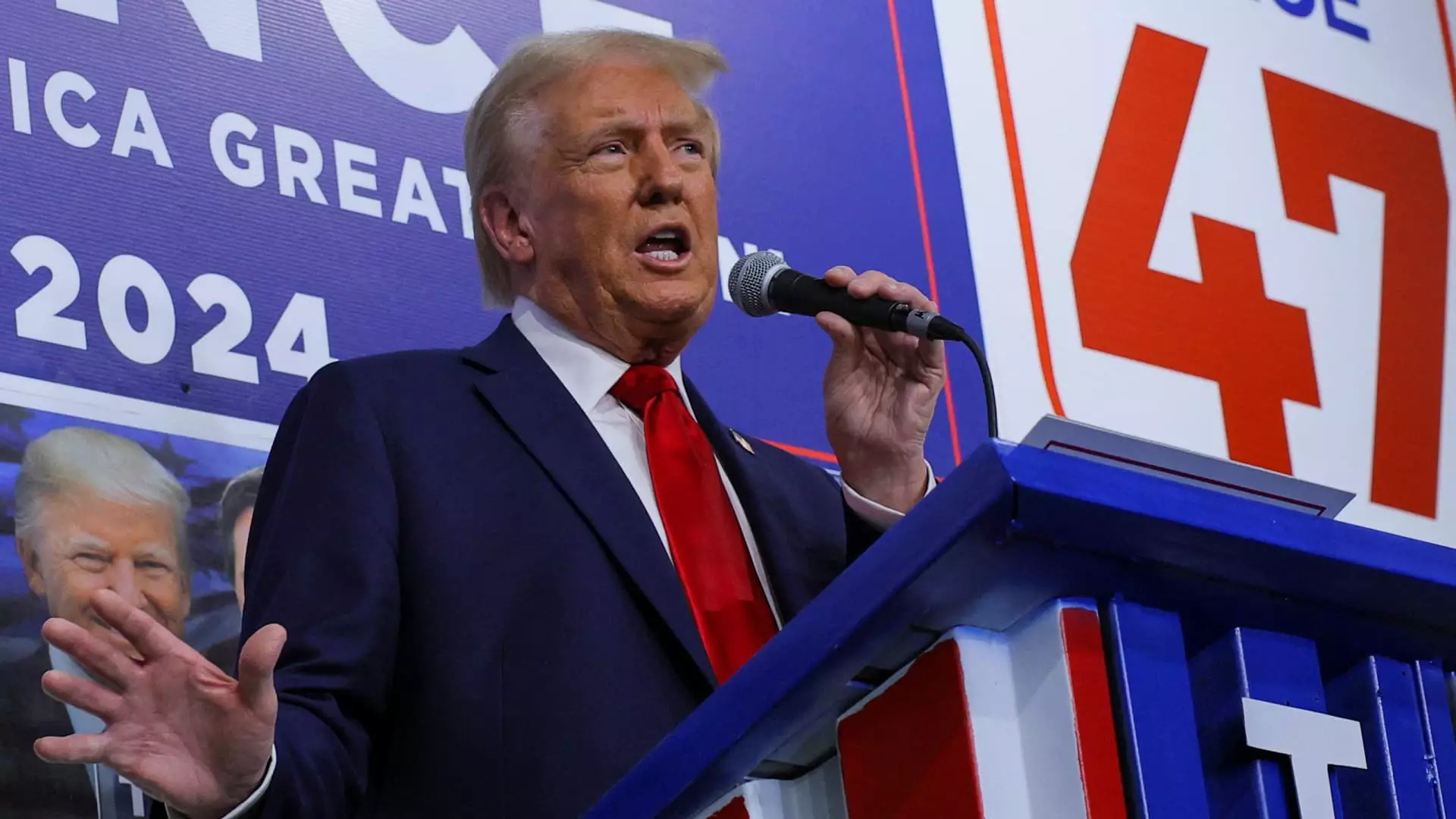Recent polling data reveals that the concept of universal tariffs is facing significant resistance among the electorate. A recent survey by NBC News indicates that a considerable portion of voters is unlikely to back candidates who advocate for high tariffs, particularly those reminiscent of former President Donald Trump’s proposed 20% tax on imports. This polarization around tariffs is crucial not only for understanding current voter behavior but also for unpacking the wider implications of such economic policies on the American economy.
The NBC News poll, which surveyed 1,000 registered voters from October 4 to October 8, highlights a critical dynamic in the current political landscape. With 44% of respondents indicating they would be less likely to support a candidate promoting universal tariffs, this statistic casts a shadow over Trump’s cornerstone economic strategy. In stark contrast, only 35% expressed greater support for a candidate with such a policy. The 19% who found the issue neutral provides a glimpse into the undecided voters, yet it appears that the prominent narrative is one of reluctance towards expansive tariff schemes.
This divide in sentiment raises questions about whether the electorate is shifting towards more protectionist views or if they are simply wary of the consequences that high tariffs might impose on their financial situations. The poll has a margin of error of 3.1 percentage points, underscoring the necessity for cautious interpretation of the data. Nevertheless, the trend is clear: voters are exhibiting hesitancy in embracing Trump’s hardline tariffs.
Despite the polling results, Trump remains steadfast in his belief that high tariffs will revitalize American manufacturing and retain jobs within the country. In a recent interview with Bloomberg, he defended his tariff proposals, arguing that significant tariffs would compel companies to relocate operations back to the U.S. His assertion that tariffs should be “so high, so horrible, so obnoxious” reflects a radical approach that may not resonate well with everyday voters who prioritize economic stability and affordable consumer goods.
Trump’s proposal of a sweeping 20% tariff on all imports, along with an even steeper 60% on Chinese goods, embodies an aggressive stance on trade that appeals to some, particularly those impacted by deindustrialization. However, this approach overlooks critical economic principles that could have adverse effects on the very demographics he aims to support.
Economists have raised alarms regarding the potential ramifications of universal tariffs on the U.S. economy. The fundamental argument against such blanket tariffs is that the burden ultimately falls on U.S. importers, which likely translates into higher prices for consumers. With inflation already a concern in American households, the introduction of high tariffs could exacerbate financial strain among voters.
Critics, including Republican Senate Minority Leader Mitch McConnell, have articulated their opposition to tariffs, emphasizing that they lead to increased prices for consumers and disrupt market dynamics. This bipartisan criticism suggests that the anger directed at these proposals is not merely a partisan issue but rather a genuine concern for economic prudence.
Political Consequences and the Democratic Response
Trump’s tariff policies have drawn significant attention from his Democratic opponents, notably Vice President Kamala Harris, who has labeled the proposed tariffs as a “Trump sales tax.” This framing indicates a strategic move to capitalize on the unpopularity of the tariff proposals, potentially swaying undecided voters towards the Democratic platform.
Conversely, the Biden-Harris administration’s own approach to trade, while maintaining some of Trump’s tariffs, seeks to present a more targeted and strategic framework. Treasury Secretary Janet Yellen’s assurance that their policies consist of “a narrow, carefully targeted set of tariffs” indicates a clear differentiation from Trump’s sweeping measures, aiming for a consensus that aligns more closely with the economic concerns of American consumers.
As the landscape continues to evolve, the reluctance of voters toward universal tariffs serves as a telling indicator of the complexities entwined with implementing such economic policies. The ongoing discourse around tariffs is not just a matter of political ideology; it’s a reflection of the electorate’s immediate economic concerns and long-term aspirations. As both parties navigate this contentious terrain, the implications of tariff proposals will undoubtedly play a pivotal role in shaping the forthcoming electoral dynamics and the future of America’s trade policies.


Leave a Reply